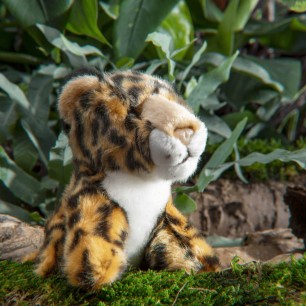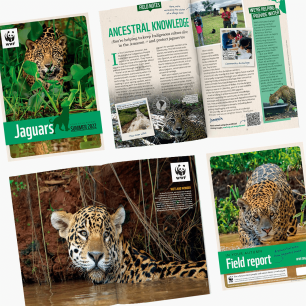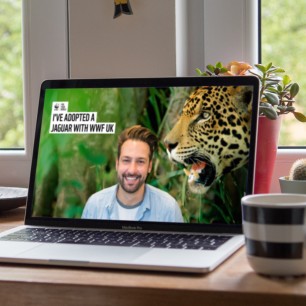The jaguar has been virtually wiped out from most of its northern and southern range. Jaguars now occupy around half of their historic habitat.
Your adoptions will help protect jaguars in the Amazon and help fund our other vital work around the world. When you choose an animal adoption, you are supporting both your chosen animals as well as wider work to help bring our world back to life.
Adopt a jaguar and receive
Most jaguars are now found in the Amazon and the Pantanal – a huge wetland area in Brazil, Bolivia and Paraguay. Over 70% of jaguars live in the Amazon alone.
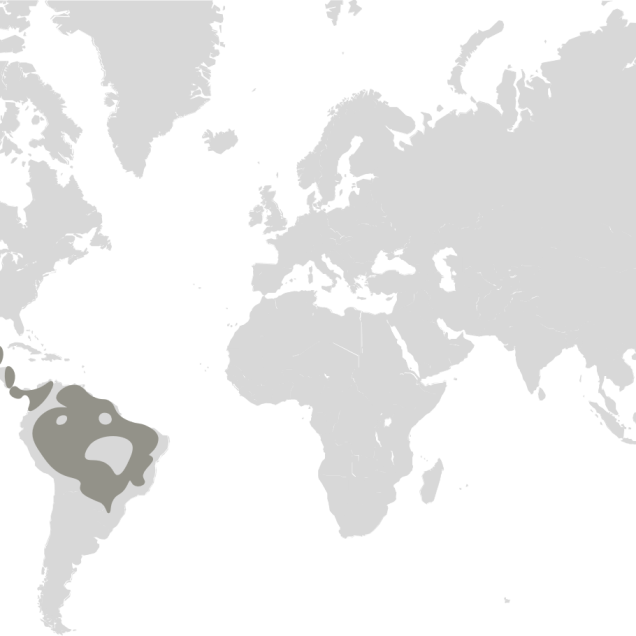
Threats that jaguars face
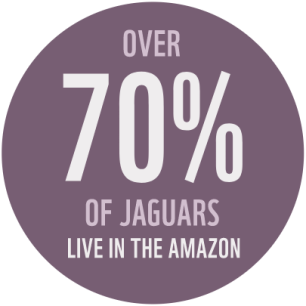
HABITAT LOSS
In the Amazon an area of rainforest the size of three football pitches is lost every minute. These forests are a key habitat for jaguars.
LOSS OF PREY
Over a quarter of the jaguar's range is thought to have depleted numbers of wild prey.
POACHING
Too often killed due to fear, livestock losses, and an increasing local and international demand for their body parts.
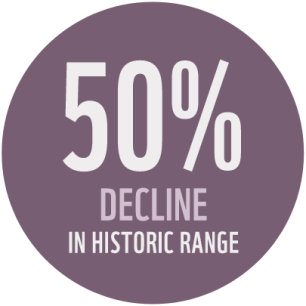
Habitat fragmentation
Deforestation not only reduces the amount of habitat available to jaguars, it also fragments and isolates populations making them more vulnerable to other threats.
How We Can Help
We’ve worked in the Amazon for over 40 years. We've helped Amazon countries to create and manage protected areas. We also work with local communities and decision makers to help preserve crucial habitats.
We’re supporting local communities in monitoring and protecting jaguars and other iconic Amazon species. The data collected through monitoring is essential to help us influence decision makers to improve conservation measures in critical areas.
Your adoption and support will help us:
-
support local communities in developing sustainable livelihoods, like ecotourism, rubber tapping and Brazil nut collection
-
support local communities in monitoring jaguars and other iconic Amazon species
-
work with local communities to reduce the problem of people and jaguars coming into conflict over livestock or fear
-
fund our other essential work around the world
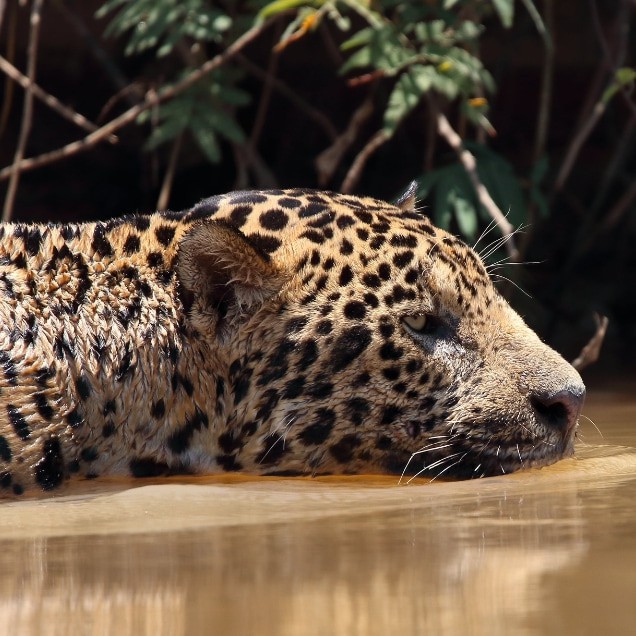
Last minute gift?

Free delivery
We offer free delivery but ask you to consider helping to cover postage with an optional £3 donation taken at checkout. This means more of your gift can go towards supporting your adoption animal and our wider work.
Your pack will be sent within 2-3 working days - but allow up to 5 working days for it to arrive.
Want to protect other big cats too? Check out our adopt a big cat page to find out more.

